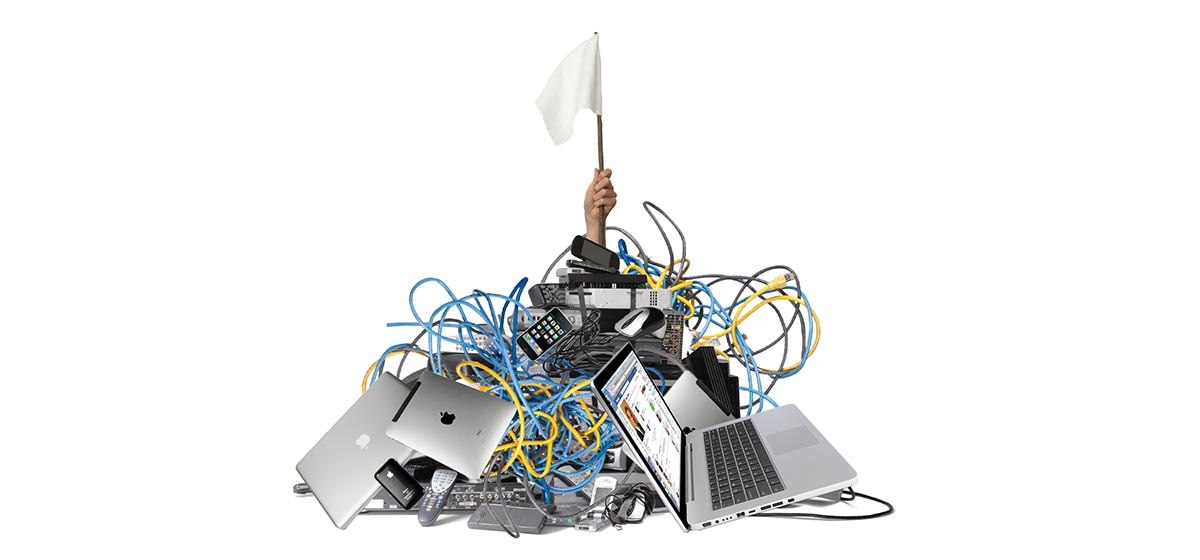The Sky Is Falling

In June I bowed to the demands of my three college-aged children and got the whole family smart phones. As I waited in line at the AT&T store, a guy behind me suggested I should get the “Siri” iPhone. “You can ask it anything, and it answers,” he said. Perhaps I should do that, I thought, and spent the extra $200.
The next week, I tried to remember to ask my phone questions, but could rarely think of anything I needed my phone to tell me. My lack of queries, however, didn’t stop my new companion. All day and into the night, the phone beeped at me whenever I got a text message, a new email or a voicemail. I apologized to companions for the incessant noisy interruptions, trying for humor with the line, “You need a six-year-old around to tell you how to work this thing.”
For some people, being hyper-connected is fun. Apparently, though, I’m not one of them. Within a week, I traded in my little nemesis for a regular old iPhone, which I was warned was nearly obsolete already. It seemed the perfect fit.
Later we escaped to our summer cottage, where we used to have a crummy little black and white TV with tin foil on the antenna to enhance reception. As a rule, it stayed in the closet except for special occasions, which historically were defined as the All-Star Game, the Olympics, Moon landings and presidential conventions. It wasn’t there this year, and we were sorry to miss most of the great Olympic feats. However, we weren’t sorry to miss everything else. We didn’t hear about the Batman shooting in Denver until days afterward, nor did we did learn every detail of that crime. Somehow we survived on no news at all, save weather reports and the tiny town’s grapevine news.
Perhaps I was an anomaly when I went into the news business 27 years ago. Unlike many reporters, I never worried on vacation about the news I might be missing. And that was long before the Internet. In the meantime, most of us have tacitly accepted the increasing tentacles we’ve sprouted to our electronic tethers. And our lives have become different lives.
It used to be that evening was the time to relax instead of the only time in the day when you could think clearly and work effectively without interruption. It used to be that only youngsters had the effrontery of checking their email at the dinner table. Now, even at restaurants, friends furtively glance at their laps and read their smart phones during conversation.
Being in the information business, I can’t afford to be a technology Luddite. I’m on Facebook, though I’ve quit twice so far; I have hundreds of Linked-in contacts but have never used them; and if I ever “tweet,” I hope someone will engineer an intervention. But one doesn’t need to have been in the news business for decades to question what good all this information is doing us. The news industry cranks out products on a 24/7 schedule, with an ever-increasing fever pitch of importance. Everything is a controversy, and each controversy lasts just long enough for someone to be blamed and duly humiliated.
Clearly there is great value in having abundant information. The key seems to be in discerning when to unplug. If you don’t, the sky will always be falling.
My summer ended with the sky falling in a different way. In mid-August, I spent several days living in a large tent on the remote end of an island in Lake Huron. Morning was when the sun rose and the dog was hungry. Day was for sailing, reading and clearing paths through the island. Evening was again the time for wine, dinner, conversation and sunsets. And night was for lying on the beach and watching shooting stars.





